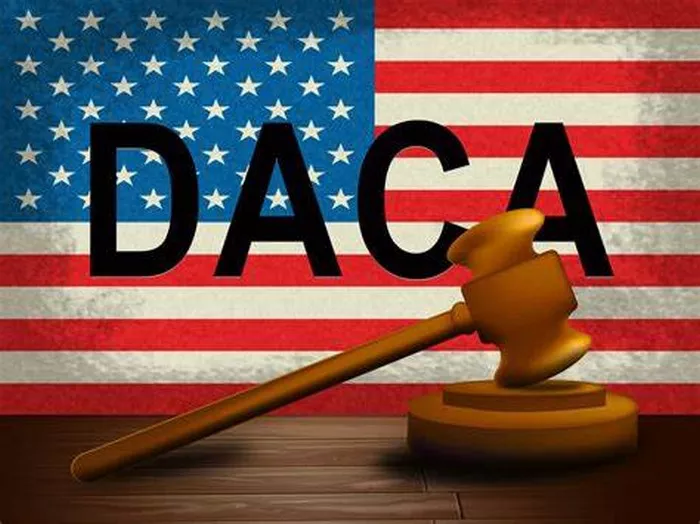The Deferred Action for Childhood Arrivals (DACA) program has been a focal point of immigration policy and debate in the United States since its inception in 2012. Designed to provide temporary relief from deportation and work authorization to certain undocumented immigrants who arrived in the country as children, DACA has offered a lifeline to hundreds of thousands of young individuals, commonly known as “Dreamers.” However, despite its significance in the lives of beneficiaries, a central question persists: Does DACA provide a pathway to permanent residency?
To fully understand the complexities of DACA and its relationship to permanent residency, it is essential to explore the program’s origins, its legal framework, the challenges it faces, and potential avenues for reform.
The Genesis of DACA
DACA emerged in response to the growing plight of undocumented youth in the United States. These individuals, often brought to the country as children by their parents, found themselves in a legal limbo, unable to regularize their immigration status despite having spent the majority of their lives in the U.S. Recognizing the unique circumstances of these individuals, the Obama administration implemented DACA through executive action in June 2012.
Under DACA, eligible individuals were granted a reprieve from deportation and provided with work authorization for renewable periods of two years, subject to meeting specific criteria. To qualify, applicants had to demonstrate that they arrived in the U.S. before turning 16, had continuously resided in the country since June 15, 2007, and met certain educational or military service requirements. Additionally, applicants were required to pass background checks to ensure they posed no threat to national security or public safety.
The Legal Framework of DACA
DACA operates within a complex legal landscape, shaped by both executive action and judicial interpretation. As an executive program, DACA was established through the discretionary authority of the Department of Homeland Security (DHS) to prioritize the enforcement of immigration laws. However, its legal foundation has been subject to scrutiny and legal challenges.
While DACA provides temporary relief from deportation and work authorization, it does not confer lawful immigration status or a pathway to citizenship. This distinction is crucial in understanding DACA’s limitations regarding permanent residency. Unlike traditional pathways to residency, such as family sponsorship or employment-based visas, DACA does not directly lead to lawful permanent residence (LPR) status, commonly known as a green card.
Furthermore, DACA’s legality has been subject to legal challenges, culminating in a landmark case before the Supreme Court in June 2020. In a 5-4 decision, the Court ruled that the Trump administration’s attempt to rescind DACA was arbitrary and capricious, effectively preserving the program. While this decision provided a temporary reprieve for DACA recipients, it underscored the program’s vulnerability to political shifts and the need for legislative solutions.
Challenges and Limitations
Despite providing essential protections to hundreds of thousands of individuals, DACA faces inherent limitations that hinder its effectiveness as a pathway to permanent residency. One of the most significant challenges is its temporary nature. DACA offers only renewable two-year periods of relief, subjecting beneficiaries to ongoing uncertainty and instability. Without legislative action, DACA recipients remain vulnerable to changes in administration and the whims of political actors.
Another critical limitation is DACA’s lack of a direct pathway to permanent residency. While DACA recipients may be eligible for certain forms of relief, such as adjustment of status through marriage to a U.S. citizen or sponsorship by an employer, these avenues are not guaranteed and often pose significant obstacles. Additionally, DACA recipients may face barriers to accessing federal benefits, including financial aid for higher education, further limiting their opportunities for advancement.
Moreover, the uncertain legal status of DACA has created a climate of fear and anxiety within immigrant communities, deterring eligible individuals from applying and undermining the program’s efficacy. The lack of legislative action to provide a permanent solution for Dreamers perpetuates this uncertainty, exacerbating the challenges they face in planning for their futures and contributing fully to American society.
Potential Avenues for Reform
Addressing the shortcomings of DACA and providing a viable pathway to permanent residency for Dreamers require comprehensive legislative reform. While efforts to pass such legislation have been met with political gridlock and partisan polarization, there remains hope for meaningful change.
One potential avenue for reform is the passage of the Dream Act or similar legislation, which would provide DACA recipients and other undocumented youth with a pathway to lawful permanent residence and eventual citizenship. The Dream Act has garnered bipartisan support in the past but has thus far failed to overcome legislative hurdles.
Additionally, comprehensive immigration reform that addresses the broader complexities of the U.S. immigration system could offer solutions for DACA recipients. Such reform could include measures to streamline the visa process, enhance border security, and provide pathways to citizenship for undocumented immigrants already residing in the country.
Furthermore, advocacy efforts and grassroots mobilization play a crucial role in advancing the cause of Dreamers and pushing for legislative action. By amplifying the voices of DACA recipients and highlighting their contributions to American society, advocates can build momentum for reform and compel policymakers to act.
Conclusion
In conclusion, while DACA has provided vital protections and opportunities for hundreds of thousands of young immigrants, it falls short of offering a direct pathway to permanent residency. The program’s temporary nature, legal vulnerabilities, and lack of a clear path to citizenship underscore the need for comprehensive legislative reform.
Addressing the plight of Dreamers requires political courage, bipartisan cooperation, and a commitment to American values of fairness and opportunity. By enacting meaningful immigration reform, policymakers can uphold the promise of the American Dream and ensure that DACA recipients have the opportunity to fully contribute to the country they call home.


